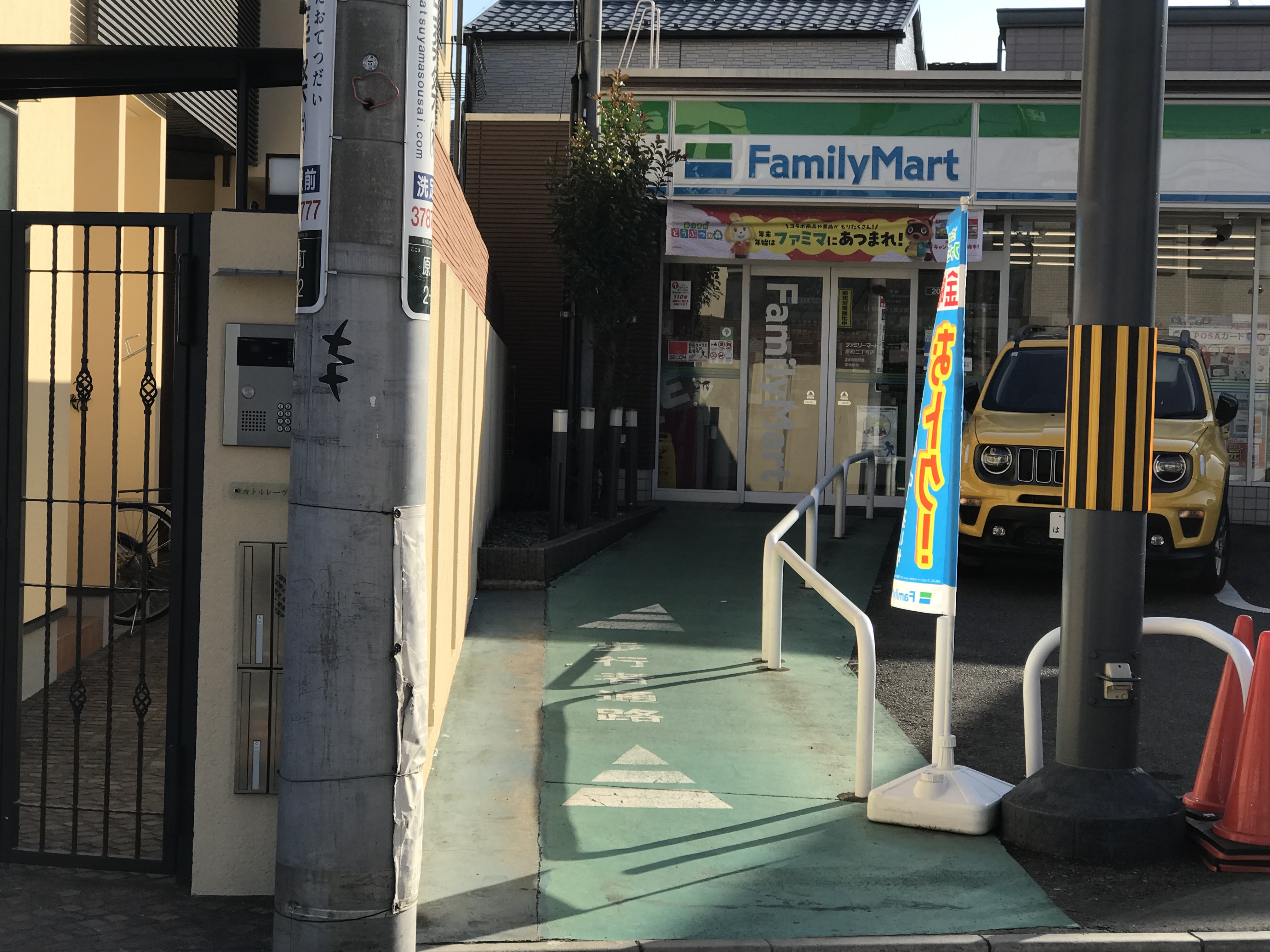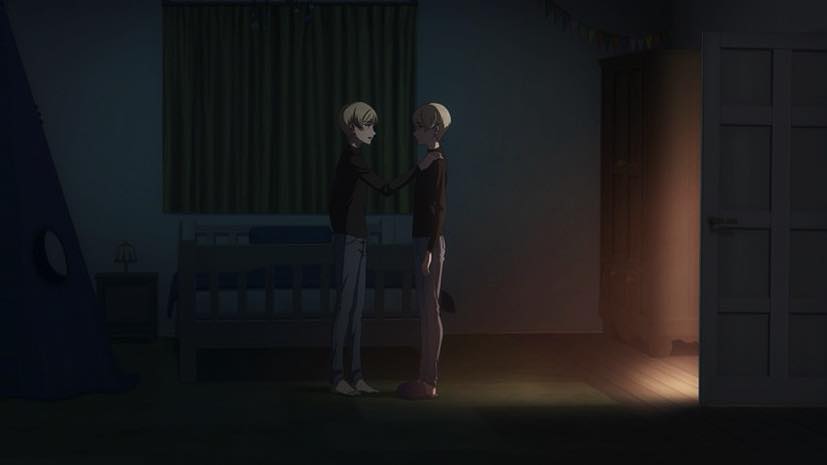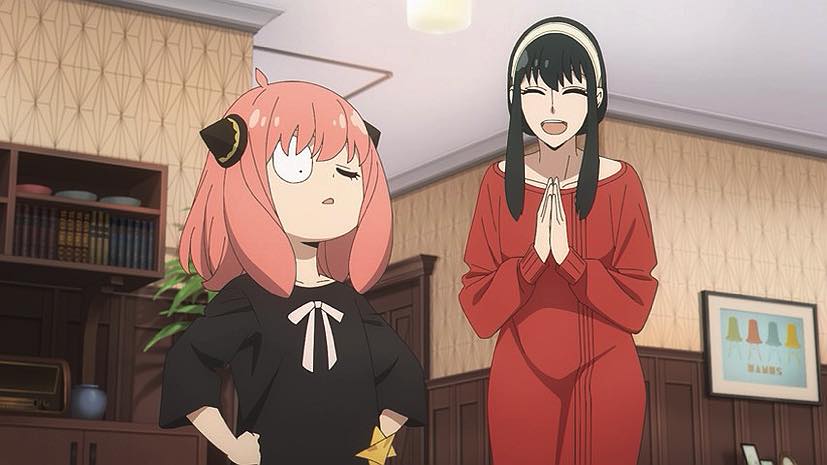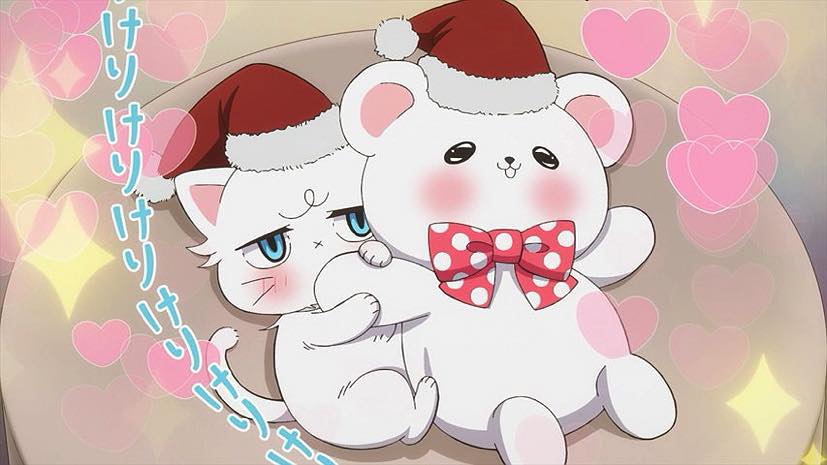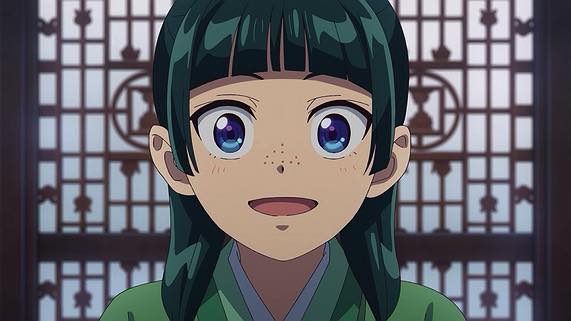Emotional openness as Yuzuki-san Chi represents it is certainly the exception rather than the rule in anime. Read more The post Yuzuki-san Chi no Yonkyoudai. – 12 (End) and Series Review appeared first on Lost in Anime.






 Fall 2023 is unusual in having three really good series being almost totally overlooked. Out of this series, Overtake!, and Migi to Dari I’m not sure which one I’d say is the best – it’d be a dead-heat. But there’s no question Yuzuki-san Chi no Yonkyoudai. is the most unjustly ignored, as it gets even less discussion in English than the other two. I’ve expressed my views on why that might be, but the lack of commercial impact is certainly a reason shoujo anime are increasingly rare – and almost invariably one cour when we do get them.
Fall 2023 is unusual in having three really good series being almost totally overlooked. Out of this series, Overtake!, and Migi to Dari I’m not sure which one I’d say is the best – it’d be a dead-heat. But there’s no question Yuzuki-san Chi no Yonkyoudai. is the most unjustly ignored, as it gets even less discussion in English than the other two. I’ve expressed my views on why that might be, but the lack of commercial impact is certainly a reason shoujo anime are increasingly rare – and almost invariably one cour when we do get them.
 Emotional openness as Yuzuki-san Chi represents it is certainly the exception rather than the rule in anime. I think it’s effective partly because of that very fact, but also because this series doesn’t overplay its hand. It somehow manages to avoid slipping into the saccharine or melodramatic despite regularly depicting inherently dramatic and emotional situations. These boys have lost their parents and in many ways life is a struggle for them, but they’re not miserable or self-pitying. They have each other, they’re grateful for that even if they squabble occasionally, and they move on. Which is what actually happens most of the time – you move on.
Emotional openness as Yuzuki-san Chi represents it is certainly the exception rather than the rule in anime. I think it’s effective partly because of that very fact, but also because this series doesn’t overplay its hand. It somehow manages to avoid slipping into the saccharine or melodramatic despite regularly depicting inherently dramatic and emotional situations. These boys have lost their parents and in many ways life is a struggle for them, but they’re not miserable or self-pitying. They have each other, they’re grateful for that even if they squabble occasionally, and they move on. Which is what actually happens most of the time – you move on.
 You may have noticed that only four characters appeared in this episode, and I think that was a fitting way to bring the adaptation to a close, even as the manga is ongoing (though sadly translations either official or otherwise are not). Gakuto has decided to write a diary, and his offhand comment about how his daily life is too mundane for a diary sets Hayato off on another spate of self-recriminations. The self-aware little Gakuto is only musing on how being six is fairly mundane most of the time, but one always has to walk on eggshells where Hayato is concerned.
You may have noticed that only four characters appeared in this episode, and I think that was a fitting way to bring the adaptation to a close, even as the manga is ongoing (though sadly translations either official or otherwise are not). Gakuto has decided to write a diary, and his offhand comment about how his daily life is too mundane for a diary sets Hayato off on another spate of self-recriminations. The self-aware little Gakuto is only musing on how being six is fairly mundane most of the time, but one always has to walk on eggshells where Hayato is concerned.
 Truth be told I don’t think it’s quite normal for older brothers to be as doting as Mikoto and Minato are on Minato and Gakuto, respectively. But I do imagine that their circumstances push them in that direction, and they certainly push Hayato to be the way he is (though I still say his open favoritism – and who he excludes from it – is rather unkind). Gakuto accepts the sometimes smothering nature of this more sanguinely than Minato, but then he’s a rather more sanguine person, and it’s easier not to feel suffocated by that kind of thing when you’re six than when you’re twelve.
Truth be told I don’t think it’s quite normal for older brothers to be as doting as Mikoto and Minato are on Minato and Gakuto, respectively. But I do imagine that their circumstances push them in that direction, and they certainly push Hayato to be the way he is (though I still say his open favoritism – and who he excludes from it – is rather unkind). Gakuto accepts the sometimes smothering nature of this more sanguinely than Minato, but then he’s a rather more sanguine person, and it’s easier not to feel suffocated by that kind of thing when you’re six than when you’re twelve.
 That exchange where Hayato notes that he thinks of his brothers more like grandsons was kind of interesting. I can see the dynamic there, but the thing is that he’s more like that with Mikoto and Gakuto whereas with Minato he’s a traditional parent. I’m sure he’s quite unaware of this, and Minato may only realize is subconsciously, but it is a hint of dysfunction in this otherwise pretty tight unit. As is the fact that Mikoto can be genuinely creepy sometimes – I’m never quite sure how aware he is about that – like when he calls Gakuto his rival. Which it’s clear makes Gaku uncomfortable (as did that confrontation in Episode 10) though he’s not the sort to admit that.
That exchange where Hayato notes that he thinks of his brothers more like grandsons was kind of interesting. I can see the dynamic there, but the thing is that he’s more like that with Mikoto and Gakuto whereas with Minato he’s a traditional parent. I’m sure he’s quite unaware of this, and Minato may only realize is subconsciously, but it is a hint of dysfunction in this otherwise pretty tight unit. As is the fact that Mikoto can be genuinely creepy sometimes – I’m never quite sure how aware he is about that – like when he calls Gakuto his rival. Which it’s clear makes Gaku uncomfortable (as did that confrontation in Episode 10) though he’s not the sort to admit that.
 Another element that’s quite striking – and quite surprising – about this series is how unconventional the visual style is. We’ve gotten some pretty creative and wild sequences, and that bus ride in this episode – switching to real-life backgrounds, then pencil drawings as Gakuto imagined seeing himself with his parents – was one of them. Director Hongou Mitsuru is certainly highly experienced (hell, he did the masterpiece Outlaw Star) but I don’t remember many instances of his going avante-garde like this.
Another element that’s quite striking – and quite surprising – about this series is how unconventional the visual style is. We’ve gotten some pretty creative and wild sequences, and that bus ride in this episode – switching to real-life backgrounds, then pencil drawings as Gakuto imagined seeing himself with his parents – was one of them. Director Hongou Mitsuru is certainly highly experienced (hell, he did the masterpiece Outlaw Star) but I don’t remember many instances of his going avante-garde like this.
 Ending adaptations of ongoing manga is always a challenge, but I couldn’t have asked for more than what Yuzuki-san Chi no Yonkyoudai. delivered here. I can’t imagine there was ever any doubt that this show would run a single cour and that’s it – it’s not an original series but Hongu-sensei will have known exactly what he had to work with. A “life goes on” ending suits the material perfectly – better than something more dramatic would have. That’s ultimately the theme of this series, life goes on, and we need to rely on others to support us. Looking back on the past with sadness doesn’t mean you can’t look forward to the future with hope, and count your blessings in the present.
Ending adaptations of ongoing manga is always a challenge, but I couldn’t have asked for more than what Yuzuki-san Chi no Yonkyoudai. delivered here. I can’t imagine there was ever any doubt that this show would run a single cour and that’s it – it’s not an original series but Hongu-sensei will have known exactly what he had to work with. A “life goes on” ending suits the material perfectly – better than something more dramatic would have. That’s ultimately the theme of this series, life goes on, and we need to rely on others to support us. Looking back on the past with sadness doesn’t mean you can’t look forward to the future with hope, and count your blessings in the present.










































The post Yuzuki-san Chi no Yonkyoudai. – 12 (End) and Series Review appeared first on Lost in Anime.



